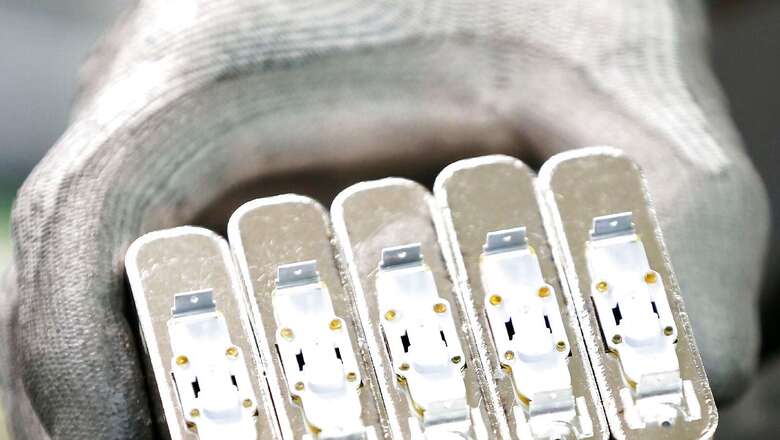Can Zinc-air Batteries Replace Lithium-ion? IIT Madras Researchers Working on EV Battery Alternative

views
Amid the boom in the electric vehicle (EV) sector in India, the researchers at the Indian Institute of Technology-Madras (IIT-Madras) announced that they are working on zinc-air batteries which could be used as an alternative to Lithium-ion batteries.
The team of researchers had started their work on this battery technology almost three years ago. The researchers, led by Dr Aravind Kumar Chandiran, assistant professor at IIT-Madras’ Department of Chemical Engineering, are partnering with major corporations to build zinc-air batteries after filing patents. It is believed that zinc-air batteries can be deployed in two-wheeler and three-wheeler electric vehicles.
According to IIT-Madras, the new batteries will be less expensive than current lithium-ion batteries and have a longer shelf life.
“Through this research, we are also identifying shortcomings in existing technology and finding ways to address them. The research team has currently developed zinc-air cells and is working towards developing zinc-air packs for EVs,” said Dr Chandiran.
Lithium-ion batteries are the most common right now around the world. China dominates the worldwide Li-ion battery production industry.
Because battery-grade lithium isn’t commonly available in India, many OEMs in the country import their Li-ion battery cells from China, South Korea, or western Europe. Furthermore, lithium-ion batteries alone cannot meet the different needs of the Indian market.
Additionally, Li-ion has its drawbacks, as it is fragile and it needs a protective circuit to keep it running safely. The protection circuit, which is built into each pack, regulates the peak voltage of each cell during charge and prevents the cell voltage from falling too low during discharge.
However, IIT-Madras said that the researchers are proposing separate Zinc Recharge Stations, similar to gas stations for IC-engine automobiles. EV customers can swap spent zinc cassettes of the battery with fully charged zinc cassettes at these zinc recharge stations, thanks to battery-swapping technology.
According to Dr Chandiran, “The major advantage of the zinc-air batteries as currently the only option available with the lithium-ion batteries is that the entire used battery pack has to be removed and be swapped with a complete lithium-ion battery pack. This results in double the capital investment in the case of lithium-ion batteries.”
In simple words, unlike Li-ion batteries, zinc-air batteries only require anode replacement rather than the entire battery.
It should be also noted that the researchers are also considering using solar panels to replenish the used zinc cassettes.
Meanwhile, Akhil Kongara, who is a research scholar at IIT-Madras and a research team member, said: “According to the proposed plan, an EV user will only have to spend a few minutes at the zinc recharge stations to swap zinc cassettes.”
Gunjan Kapadia, another research scholar, working on the zinc-air batteries and lithium-ion batteries’ operational safety at IIT-Madras stated that the zinc-air batteries developed in India are exceptionally safe because they have aqueous electrolyte and do not catch fire even in the worst-case scenario of an EV accident.
Advantages of Zinc-Air Batteries
In India, zinc is extensively available and this would naturally reduce reliance on countries like China or South Korea for Li-ion battery cells, reducing imports.
In addition, as previously noted, zinc batteries are less expensive than Li-ion batteries.
For example, while Li-ion batteries cost between $200 and $250 per KWh, zinc-air batteries cost roughly $150 per KWh, according to the researchers. With more widespread adoption, the price is predicted to fall below $100 per KWh.
The researchers further mention that these batteries are water-based, have a longer shelf-life and have a high turnaround efficiency.
It is also understood that its intrinsic characteristics, including safety and low cost, make it one among the most promising next-generation batteries on the market.
However, apart from zinc-air batteries there is another option for the EV market and that is sodium-ion cells. Sodium is not only common, but it is also simple to extract, and no single country dominates the worldwide value chain.
Experts believe that sodium-ion is 30-40% less expensive than lithium-ion cells. In addition to lower costs, sodium-ion has other advantages, such as battery capacity and environmental impact.
Read all the Latest Auto News here




















Comments
0 comment